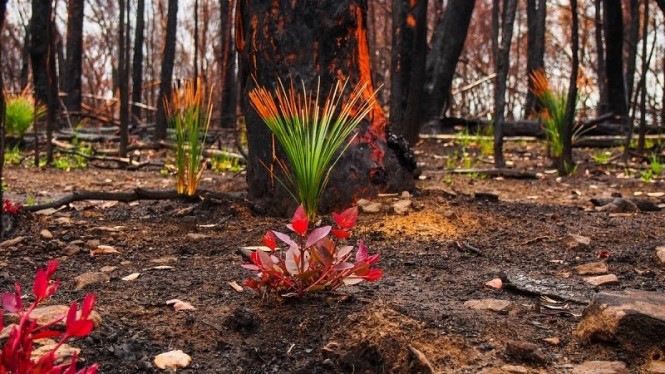Community Recovery

Recovery is "the restoring or improving of livelihoods and health, as well as economic, physical, social, cultural and environmental assets, systems and activities, of a disaster-affected community or society, aligning with the principles of sustainable development and 'build back better', to avoid or reduce future disaster risk." United Nations International Strategy for Disaster Reduction, 2017
Planning for Recovery
Local governments are responsible for managing recovery following an emergency event. The City of Albany will work closely with the community and responsible agencies to facilitate ‘community-led’ recovery process. It has appointed a Local Recovery Coordinator and has developed a Local Recovery Plan to guide the recovery process.
The Recovery Plan also sets out guidelines for managing financial arrangements, including donations and the distribution of government financial aid.
Click on the link below to view a copy of the City of Albany Recovery Plan.
City of Albany Local Recovery Plan
Principles of Recovery
Community recovery in Western Australia is underpinned by the National Principles for Disaster Recovery. The City of Albany’s recovery activities will embrace the following principles:
- Understand the context – successful recovery is based on an understanding of community context, with each community having its own history, values and dynamics;
- Recognise the complexity – successful recovery is responsive to the complex and dynamic nature of both emergencies and the community;
- Use community-led approaches - successful recovery is community-centred, responsive and flexible, engaging with community and supporting them to move forward;
- Coordinate all activities - successful recovery requires a planned, coordinated and adaptive approach, between community and partner agencies, based on continuing assessment of impacts and needs;
- Communicate effectively - successful recovery is built on effective communication between the affected community and other partners; and
- Recognise and build capacity - successful recovery recognises, supports, and builds on individual, community and organisational capacity and resilience.
Communications in Recovery
Effective communications is a key principle of disaster recovery and critical to facilitating community involvement. An affected community has a right to all information relevant to its recovery. The City of Albany will:
- Ensure the information is presented in a way that is clear and free of jargon.
- Consult with the community to establish what people actually want to know, i.e. what is happening with recovery, how they can access support and who to contact should they have any questions.
- Ensure our communication fits the audience.
- Respect the community by ensuring communication is culturally appropriate.
- Ensure that information is accessible to audiences in diverse situations, addresses a variety of communication needs and is addressed through a variety of media and channels.
- Reiterate and re-communicate information periodically throughout the recovery process.
- Allow people affected by an emergency to acknowledge and validate their experiences.
Recovery Centres
In the event of an emergency which has an impact on the community, the City of Albany may establish a Recovery Centre to provide assistance to those impacted by the emergency.
The decision of where to establish the Local Recovery Centre will be made by the Local Recovery Coordinator and depend upon the location, extent and severity of the emergency.
Cash Donations
The City will provide information regarding any current appeals for donations on its website.
There are currently no current appeals.
Donations of Goods and Services
The City of Albany has partnered with GIVIT, a national not-for-profit organisation, to help manage all offers of donated goods and services during recovery from emergency events.
Donations made via GIVIT provide critical and immediate support to those affected by emergencies as well as providing longer recovery support to help communities recover.
To donate items you can see the list of urgently needed items at www.givit.org.au.
If you are a local charity or frontline service wanting to access donated goods and services, please register at www.givit.org.au/charity-registration.